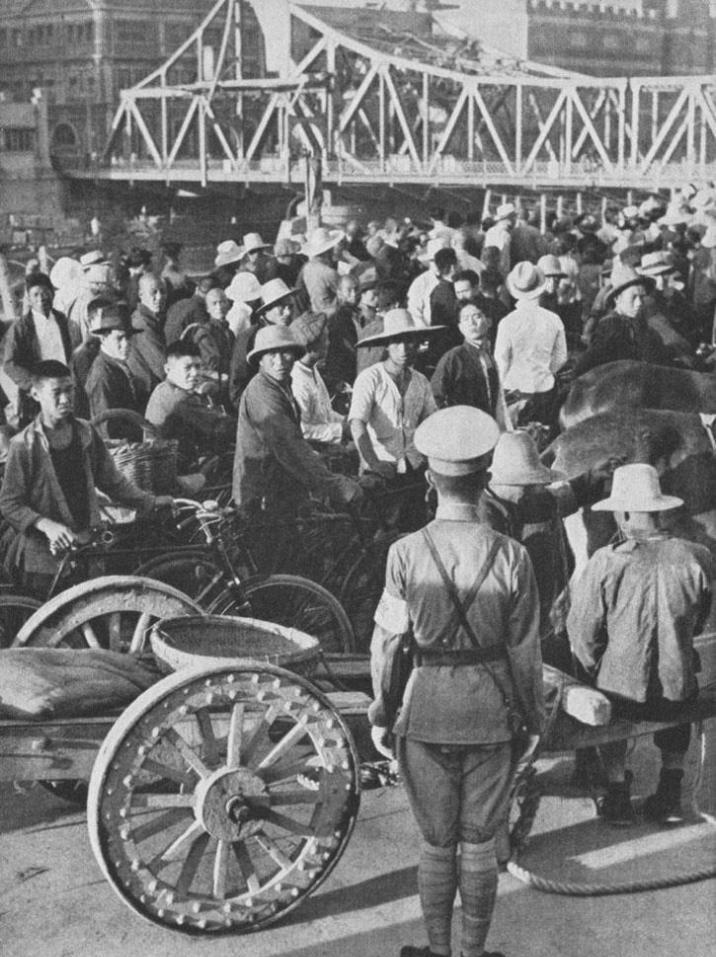Tongling, Anhui is located in the south-central part of Anhui Province, which was one of the central areas of the New Fourth Army's revolutionary activities during the War of Resistance Against Japanese Aggression. There were countless stories of singing and weeping here. Of course, while fighting against the Japanese and defending the country, the invaders not only plundered everywhere, but also carried out bloody revenge on the people of Tongling, and the two tragic cases we will introduce today are examples.

According to historical records, after the Japanese invaded Tongling in Anhui Province, they occupied a mine on Tongguan Mountain, and they went around arresting and luring innocent people to mine for it. The life of the miners is very difficult, a grass hut or shed of less than 40 square meters, to live in thirty or forty workers, eating half a bowl of bran vegetables and half a bowl of grain, and there is no personal freedom, the Japanese Kou clearly stipulates that workers are not allowed to gather in groups to talk, workers are not allowed to run around, they must take a passage to work, if there is a violation, killed on the spot.
Under the high-pressure control of the Japanese Kou, the workers went down to work in the well, and if they were not careful, they were whipped on the spine, and countless people were killed and injured.
In the summer of 1942, cholera was circulating in the Tongguanshan Mine, and the Japanese Kou found sick workers and did not give them any medical treatment at all, and the sick continued to work forced to work, and the serious ones were dragged to the Baijia Waterlogged Mass Grave to be buried alive without waiting for the gas to be cut off.
From April 1940 to August 1945, the workers of Tongguanshan died of exhaustion, illness, shooting, and buried alive, so after the surrender of the Japanese Kou, the local residents called the place where the Workers were buried by baijia waterlogging "mass graves".
In 1943, the Japanese also committed a massacre of people in the village of Anmen in Tongling.
Anmen Village is a small village near Shun'an Town, Tongling County, Anhui Province, with only 8 households in the village during the War of Resistance Against Japanese Aggression, and anti-Japanese guerrillas often operated here.
On the night of July 7, 1943, the Japanese Kou, who had set out from the town of Anshun, surrounded the village of Anmen under the leadership of the traitor Fu Yijia. The villagers who woke up from the dream were gathered on the rice field, and the Japanese Kou dragged out 15 young adults from the crowd, and one of the Japanese leaders brandished a command knife and shouted: You are all dead in the work of the New Fourth Army!
So dozens of Japanese Kou gathered around and forced the 15 people to kneel down facing the rice field with bayonets, and the leader of the Japanese Kou took the saber and shouted a few times, and more than a dozen dangling bayonets stabbed down at the same time, and after a scream of tearing hearts and lungs, the 15 young adults fell in a pool of blood. After killing the people, the Japanese Kou feared a guerrilla attack and retreated in a hurry before the autopsy was too late.
Among the 15 victims of the massacre in Anmen Village, 6 people, including Zhang Da, Walking Small Mechanic, Shi Gan Bald, Xiao Youke, and Ge Dongxiang, died on the spot; Xiao Jiaji, Xiao Xiahua and 8 others were seriously injured and survived death. Only 17-year-old Xiao Hounan did not wait for the Japanese bayonet to fall, so he fell to the ground and ran desperately from the rice field, the Japanese Kou was afraid of alarming the guerrillas, did not dare to shoot, Xiao Hounan was lucky to escape.